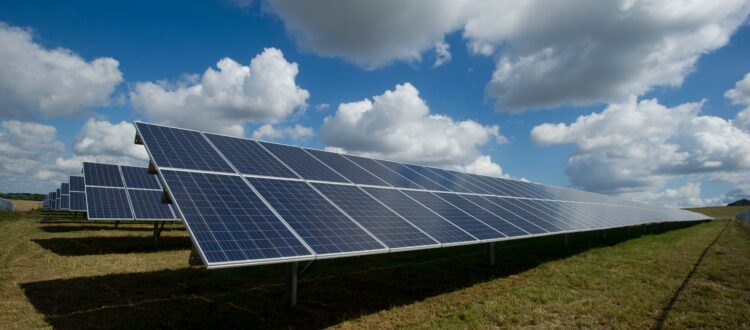Harnessing Community Solar Gardens to Alleviate Poverty on Indian Reservations.
The persistent issue of poverty on Indian reservations in the United States demands innovative and culturally sensitive solutions. One promising avenue is the establishment of community solar gardens, which not only contribute to poverty reduction but also align with Native beliefs and values. Community solar gardens offer a path to economic empowerment, environmental stewardship, and community cohesion, all of which resonate deeply with the spiritual and cultural foundations of Native societies. By integrating modern sustainable practices with ancient wisdom, these initiatives can catalyze positive change and help break the cycle of poverty that has plagued many Native American communities.
Historical Context and Modern Challenges
Indian reservations have long suffered from socio-economic disparities rooted in historical injustices, discriminatory policies, and limited access to resources. These challenges are exacerbated by a lack of economic opportunities, inadequate infrastructure, and geographical isolation. Native American communities often face disproportionately high energy costs, which strain already limited household budgets and further hinder their ability to escape poverty’s grip. Addressing these issues requires holistic solutions that respect and honor Native traditions while embracing contemporary innovation.
Community Solar Gardens: A Path to Empowerment
Community solar gardens offer a transformative model that aligns with both sustainable development goals and Native beliefs. A community solar garden is a shared solar energy installation that allows multiple participants to benefit from clean energy production without the need for individual rooftop installations. These projects have the potential to generate a range of socio-economic benefits for Native communities:
- Energy Cost Savings: By harnessing the power of the sun, community solar gardens can substantially reduce energy costs for residents, freeing up financial resources that can be allocated to other essential needs, such as education, healthcare, and housing.
- Job Creation: The development, construction, and maintenance of solar gardens create local employment opportunities. This not only stimulates economic growth within the community but also provides job training and skill development for residents, paving the way for long-term prosperity.
- Community Ownership: Community solar gardens encourage collective ownership and decision-making. This communal approach aligns with Native values of interconnectedness and shared responsibility, fostering a sense of unity and pride.
- Environmental Stewardship: Native cultures have deep-rooted connections to the land and emphasize the importance of responsible resource management. Solar energy is a clean and renewable source that resonates with these beliefs, promoting environmental sustainability for future generations.
Harmonizing with Native Beliefs
The integration of community solar gardens with Native beliefs is not only practical but also spiritually resonant. Many Native cultures view the earth as a sacred entity, emphasizing the interdependence of all living beings. This ecological perspective aligns with the sustainable ethos of solar energy production, as it underscores the need to protect and preserve the planet for future generations.
Furthermore, Native American societies have a strong tradition of communalism, where resources are shared and decisions are made collectively. Community solar gardens embody this ethos by enabling communities to collectively manage and benefit from clean energy production. This fosters a sense of empowerment, as community members are actively engaged in shaping their economic and environmental futures.
Case Study: The Lakota Solar Garden
The Lakota Solar Garden, situated on the Pine Ridge Indian Reservation in South Dakota, serves as a compelling example of how community solar gardens can drive positive change aligned with Native beliefs. Developed in partnership with local organizations and tribal leaders, the Lakota Solar Garden not only generates clean energy but also promotes cultural education, job training, and sustainable agricultural practices rooted in Lakota traditions. The project’s success demonstrates the potential for synergizing modern technology with Native wisdom to address poverty and build resilient communities.
Challenges and Future Directions
While community solar gardens hold immense promise, their successful implementation requires addressing certain challenges. These include securing funding, navigating regulatory frameworks, and ensuring meaningful community engagement throughout the project lifecycle. Collaborative efforts between tribal governments, non-profit organizations, and governmental agencies are essential to overcome these barriers and create an environment conducive to sustainable development.
In the future, the expansion of community solar gardens could be guided by comprehensive policy frameworks that recognize the unique needs and aspirations of Native communities. These frameworks should prioritize cultural sensitivity, promote equitable access to clean energy, and facilitate capacity building within Native American populations. By tailoring strategies to individual reservations and embracing localized solutions, community solar gardens can continue to serve as a catalyst for poverty reduction and community empowerment.
Conclusion
Community solar gardens have the potential to revolutionize the socio-economic landscape of Indian reservations while honoring Native beliefs and values. These initiatives offer a path to economic empowerment, job creation, and environmental stewardship, aligning seamlessly with the interconnectedness and communal ethos that define Native cultures. As Native American communities strive to break free from the cycle of poverty, community solar gardens provide a beacon of hope, bridging the gap between ancient wisdom and modern innovation. By nurturing these projects, we not only create a brighter future for Native communities but also honor the rich tapestry of traditions that have sustained them for generations.




